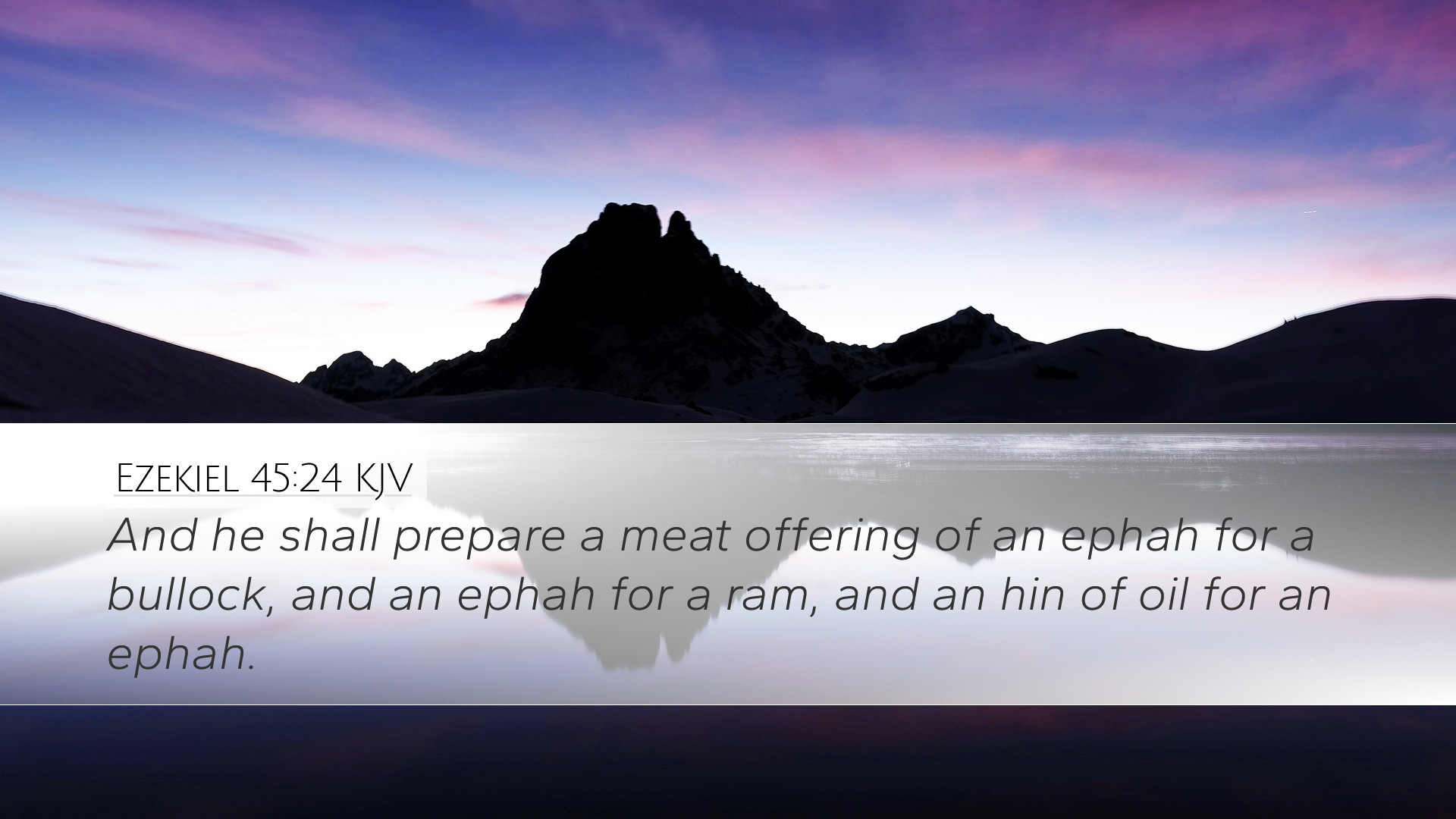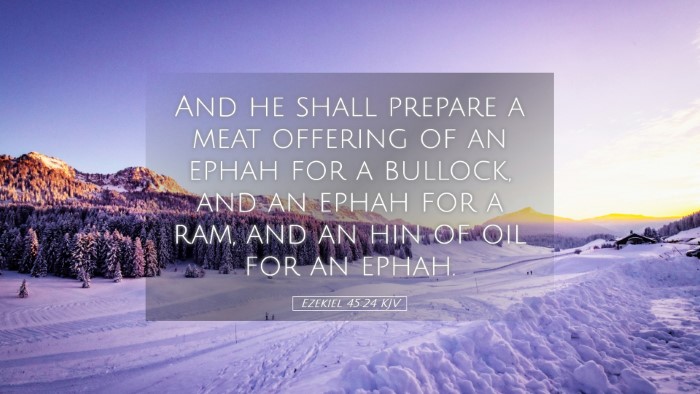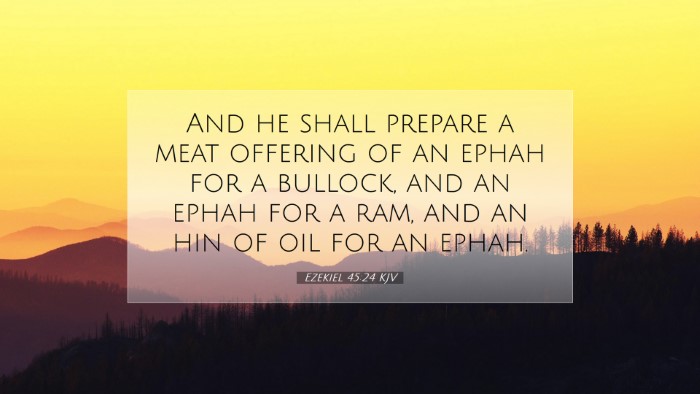Ezekiel 45:24 Commentary
Ezekiel 45:24 states: "And he shall prepare a meat offering of an ephah for a bullock, and an ephah for a ram, and an hin of oil for an ephah." This verse is part of a larger section in Ezekiel that deals with worship and the offerings required in the restored temple.
Contextual Background
Ezekiel prophesied during the Babylonian exile, addressing the exiled Israelites with visions that included a detailed description of a future temple in Jerusalem. The structure and ritual practices outlined serve not just as instructions but also as a means to instill reverence and discipline among the people. This chapter underscores God’s desire for order and sanctity in worship.
Analysis of the Verse
The offerings specified here indicate the role of the temple priesthood, the necessity of sacrificial rites, and foreshadow the ultimate sacrifice of Christ. Each item mentioned - the meat offering and the oil - is significant in terms of Jewish sacrificial practice.
-
Meat Offering: The mention of a meat offering (or grain offering, as some translations suggest) points to gratitude and dedication to God. These offerings acted as a means of presenting oneself before God, acknowledging His provision and sovereignty.
-
Symbolism of the Ephah: An ephah represents a specific measurement, highlighting the importance of proportionate and substantial offerings. It speaks to the principle that our sacrifices must be meaningful, reflecting our commitment to God.
-
Hin of Oil: The hin of oil signifies the anointing and sanctifying aspect of the offerings. Oil in biblical texts often symbolizes the Holy Spirit, which suggests that our dedication must be accompanied by divine empowerment.
Theological Insights
From a theological perspective, Ezekiel's vision of temple worship points to both continuity and transformation in God’s redemptive plan. The sacrificial system established under the Law served as a type and shadow of the ultimate sacrifice, Jesus Christ.
-
Typology of Christ: The offerings represent the daily worship required by God, which Christ fulfills perfectly, establishing a new covenant through His death and resurrection.
-
Call to Holiness: The detailed descriptions urge the Israelites to maintain holiness in their practices. Similarly, New Testament believers are called to present their bodies as living sacrifices, holy and pleasing to God (Romans 12:1).
Commentary from Matthew Henry
Henry highlights that God’s requirements in sacrificial offerings stress the need for proper worship and reverence. Every sacrifice made in the temple was a reminder of the seriousness of sin and the need for atonement. He also suggests that the prescribed offerings balanced the worship and highlighted God's provision for His people.
Commentary from Albert Barnes
Barnes notes that this verse illustrates the meticulous nature of acts of devotion that God demands. He points out the systematic approach taken in the offerings, which serves to enforce God's orderliness and the need for meticulous worship. Barnes emphasizes that these practices underscored God’s Presence among His people, fostering a sense of awe and reverence.
Commentary from Adam Clarke
Clarke emphasizes the significance of this passage in relation to Israel's future. He explains that the offerings were deeply engrained in Jewish culture as a means of communal and individual worship. His insights suggest that these rituals also serve as a foreshadowing of the community of believers in the New Covenant, where collective worship plays a vital role in the life of the church.
Practical Applications
For pastors, students, and theologians, Ezekiel 45:24 challenges the community to reflect on the nature of their offerings to God. It provokes thought on how contemporary worship practice interacts with biblical precedents.
-
Offerings and Sacrifice: The verse emphasizes that worship is not just a matter of the heart but also involves tangible acts of dedication and commitment.
-
Community Worship: The communal aspect of the offerings encourages the church to foster unity and shared devotion in worship practices, echoing the practices of ancient Israel.
-
Awareness of Divine Order: Acknowledging God's order in worship translates to a broader understanding of how we live our lives. Orderly worship reflects discipline in our spiritual lives.
Conclusion
Ezekiel 45:24 serves as a rich well of theological and practical insights. It invites believers to consider the implications of their worship and the nature of their offerings to God. By drawing from the depth of biblical commentaries, pastors, students, and theologians can better grasp the significance of worship as both a personal and communal act that honors God.


